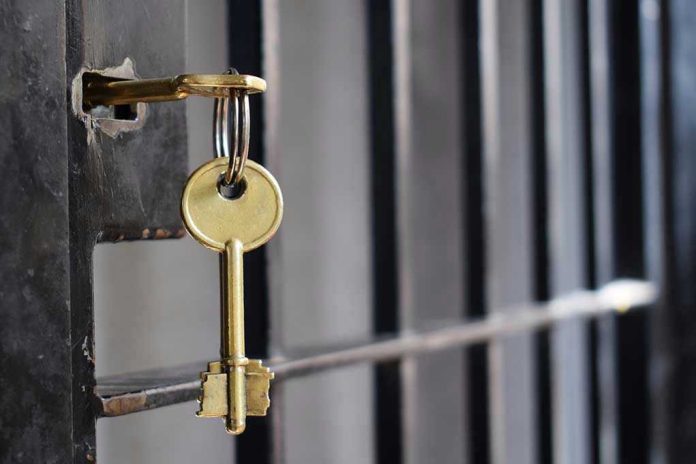
When a convicted accomplice to one of America’s most notorious sex trafficking rings gets better treatment behind bars than most of us get at a roadside motel, you have to wonder: just how far does influence reach inside prison walls?
Story Snapshot
- Ghislaine Maxwell reportedly enjoys privileges and comforts at FCI Tallahassee far beyond what is typical for federal inmates.
- Insider accounts and whistleblowers claim Maxwell’s celebrity status and security concerns drive her “pampered” prison life.
- Prison officials deny wrongdoing, but transparency issues and public outrage fuel ongoing debate.
- Calls for reform and questions about justice system integrity escalate as Maxwell’s case remains in the spotlight.
Maxwell’s Life of Luxury Behind Bars Raises Eyebrows Nationwide
Federal Correctional Institution Tallahassee has become the unlikely epicenter of a national controversy, as reports detail Ghislaine Maxwell’s unusually comfortable incarceration. Since her 2022 transfer, sources claim Maxwell’s daily life includes private recreational time, access to specialty foods, and more frequent family contact than her fellow inmates. Whistleblowers—current and former staff—paint a picture of an environment where Maxwell’s notoriety is both a shield and a key, opening doors that remain locked for most prisoners. The public, ever alert to issues of fairness in criminal justice, is left to ask: how much of this is due to policy, and how much to privilege?
Staff at FCI Tallahassee reportedly walk a tightrope. On one hand, heightened security protocols for Maxwell’s well-being are standard procedure for high-profile inmates. On the other, the scope of her special accommodations—ranging from curated meal options to time away from the general population—has sparked accusations of “pampering.” The line between necessary protective measures and outright favoritism blurs further with each revelation. Maxwell’s case, already infamous due to her role in Jeffrey Epstein’s trafficking operation, now serves as a lens to scrutinize the American penal system’s handling of celebrity offenders.
Official Denials and the Transparency Gap
Prison officials have consistently rejected claims that Maxwell receives any treatment outside the bounds of federal regulations. They argue that protocols for high-profile inmates are designed to prevent violence and media-fueled disruptions, not to confer luxury. Yet, the lack of independent documentation or third-party oversight leaves a transparency gap. The Tallahassee Democrat’s reporting, based on multiple staff interviews, stands in stark contrast to the Bureau of Prisons’ official statements. This disconnect drives public skepticism and leaves ample room for conspiracy theories, further eroding trust in the very institutions meant to deliver justice.
Maxwell’s notoriety shapes every aspect of her incarceration. Security concerns may justify some privileges, but without clear, public standards, questions about equality and fairness become impossible to ignore. The stakes go beyond one inmate’s comfort; they touch on the core promise of the justice system: that no one is above the law, and that punishment fits both the crime and the criminal, not their celebrity.
Calls for Reform and the Shadow of Precedent
Maxwell is not the first high-profile inmate accused of receiving special treatment, but her case lands at a time of heightened scrutiny for the federal prison system. The public reaction spans outrage, resignation, and grim amusement. Advocacy groups demand external investigations, and lawmakers call for new transparency requirements and oversight mechanisms. Some experts defend limited privileges as necessary for safety, but most agree: secrecy and unequal treatment breed distrust. Whether Maxwell’s case will spur meaningful reform remains to be seen, but the debate highlights a persistent American dilemma—balancing individual rights, public safety, and the appearance of justice.
The Maxwell controversy sets a new precedent for how prisons handle notorious inmates. As media coverage intensifies and more whistleblowers step forward, the Federal Bureau of Prisons faces mounting pressure to clarify its policies and demonstrate accountability. The broader implications are clear: when the public perceives that wealth and fame buy comfort even in prison, the legitimacy of the justice system itself is at risk. In the coming months, expect renewed investigations, political grandstanding, and, perhaps, the beginnings of long-overdue reform. Until then, Maxwell’s “pampered” life behind bars remains a symbol—a mirror reflecting the persistent inequalities that haunt the American criminal justice system.
Sources:
Inside Ghislaine Maxwell’s Life Behind Bars in Tallahassee – Tallahassee Democrat



